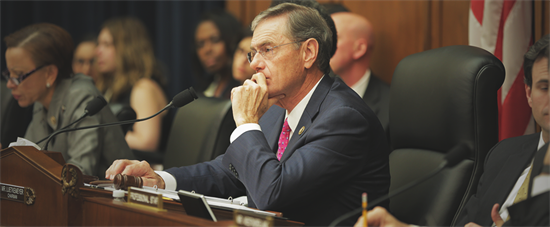Subcommittee Examines Chilling Impact of Dodd-Frank on New Financial Institutions
Washington,
March 21, 2017
Members of the Financial Services Financial Institutions and Consumer Credit Subcommittee met on Tuesday to examine the chilling impact that the Dodd-Frank Act has had on the creation of new or “de novo” financial institutions. “Today, we took the first step at looking into why there are so few new banks and the barriers to entry for would-be community financial institutions. The historical data paints a very clear picture of what has happened since the passage of Dodd-Frank. From 2010 to 2016, there were only a handful of new bank and credit union charters granted. In comparison, more than 1,300 new banks and 75 credit unions were chartered between 2000 and 2008.” said Subcommittee Chairman Blaine Luetkemeyer (R-MO). “New financial institutions are a direct benefit to consumers and communities across the nation. The subcommittee will spend the next two years pursuing initiatives that promote financial choice and accessibility for all Americans.” Key Takeaways from the Hearing: · The number of new, or “de novo,” bank and credit union charters has declined to historic lows since the passage of the Dodd-Frank Act. · Since Dodd-Frank became law, the big banks have gotten bigger while the small banks and credit unions have become fewer. · From 2010 to 2016, there were only five new bank and 16 new credit union charters granted. In comparison, between 2000 and 2008, 1,341 new banks and 75 new credit unions were chartered. Topline Witness Quotes: “Lack of de novos has its roots in excessive regulation…Some have argued that bank lending continues and therefore, there has been no impact of Dodd-Frank. Banks continue to lend even with the shackles that bind them. However, in the five years since Dodd-Frank was enacted, the pace of lending was half of what it was several years before the financial crisis. Some banks have stopped offering certain products altogether, such as mortgage and other consumer loans” – Ken Burgess, Chairman, First Capital Bank of Texas “Unfortunately, new credit unions like The Finest FCU are not being created due not only to the hurdles posed by initial start-up time and costs, but also the daunting over-regulation facing the credit union once its charter is granted. Many smaller credit unions are saying ‘enough is enough’ when it comes to the overregulation of the industry. The compliance requirements in a post-Dodd-Frank environment have grown to a tipping point where it is nearly impossible for many smaller institutions to survive, much less start from scratch. Credit unions want to continue to aid in the economic recovery, but are being stymied by this overregulation. We need regulatory relief – both legislatively and from the regulators.” – Keith Stone, President and CEO of The Finest Federal Credit Union “[T]hese added costs occasioned by Dodd Frank, Basel III and discretionary supervisory action significantly impaired existing financial institutions’ ability to provide financial services and products to consumers in the communities they serve. Many banks exited the mortgage loan business because of the complexity and uncertainty resulting from Dodd Frank, the CFPB and related rulemaking.” – Patrick Kennedy, Managing Partner, Kennedy Sutherland LLP, on behalf of the Subchapter S Bank Association
|


